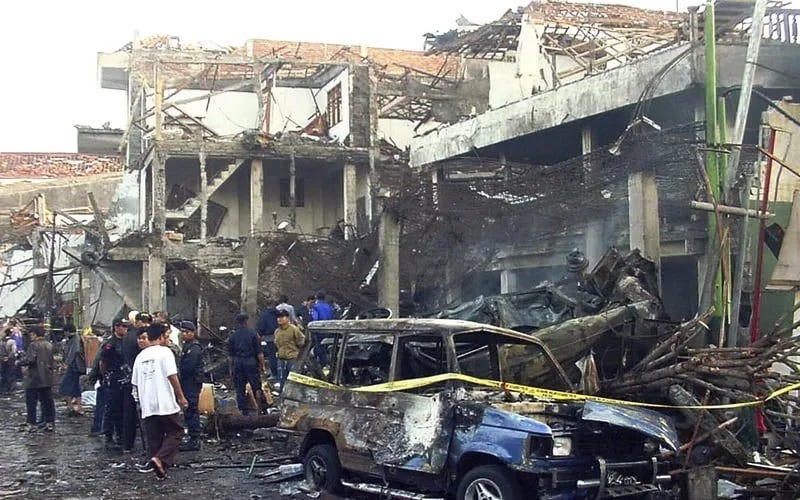IS, al-Qaeda threats in Southeast Asia suppressed, but resurgence risks remain: UN report
Higher women and children's involvement in terrorist activities is observed in the region.
SABAH: Threats from the Islamic State (IS) and al-Qaeda (AQ) as well as their affiliates have been largely suppressed in Southeast Asia with counterterrorism operations of regional security services constraining attacks, however, risks of resurgence remain, a UN report says.
The latest report by UN’s Analytical Support and Sanctions Monitoring Team concerning IS and AQ says member states have noted the intraregional nature of terrorist threats in Southeast Asia, and how IS and AQ affiliates reflect and differ from other regions.
“Similarities include the decentralised nature of IS-aligned groups and greater autonomy of action. However, Southeast Asian leadership and cadres consist of individuals motivated by local perceived grievances rather than core AQ or IS ideology,” says the report.
“Moreover, a disproportionally higher involvement of women and children in terrorist activities is observed in the region, both in support roles and as perpetrators.
“Some senior members of Al-Qaida-aligned Jemaah Islamiyah (JI) have changed tactics, increasingly focusing on engaging in local political processes.”
However, 16 JI leaders made a declaration on June 30 of this year in Bogor, West Java, that the organisation had been officially disbanded and its members would return to the fold of the Indonesian state.
The report also expresses concern about the terror groups’ use of the Internet.
“The increased use by local ISIL (Da’esh) and Al-Qaida groups of the Internet and social media for propaganda purposes raises serious concerns for regional states,” it states.
“In this context, narratives regarding events in Israel and Gaza since 7 October were seen as being amplified and exploited by Al-Qaida propaganda but have not significantly increased the threat in the region.”
The report also notes several developments in Southeast Asian terrorism in the earlier part of this year..
At the end of 2023, Malaysian Borneo’s Eastern Sabah Security Command whose area of responsibility borders the southern Philippines reported the capture of five members of the Abu Sayyaf Group who had sought refuge in Sabah.
One lone actor conducted an attack in Johor, Malaysia on May 17, inspired by IS.
LATEST EXCLUSIVE WEEKLY ROUNDUP: Bomb rocks southern Philippine town after declaration free of terrorists; bomb injures paramilitary volunteer in southern Thailand
EXCLUSIVE: Moscow terror attack may impact Southeast, South Asia and beyond. Here’s how.
EXCLUSIVE: IS leader may still be at large in Mindanao
Meanwhile, the Philippines has experienced sporadic attacks since January, attributed to “IS-inspired individuals, rather than directed by Islamic State in Iraq and the Levant in Southeast Asia (ISIL-SEA), also known as Dawlatul Islamiyah Waliyatul Mashriq,” the report states.
Several member states reported Ismael Abdulmalik alias Abu Turaife, leader of a faction of the Bangsamoro Islamic Freedom Fighters in the southern Philippines, to be the leader of ISIL-SEA, whose arrest or death could not be confirmed.
In February in the southern Philippines, armed forces reported killing the ISIL-SEA leader responsible for the December 2023 attack on a Catholic Church in Marawi City, as well as arresting Myrna Ajijul Mabanza for financing terrorist acts.
“The Maute group leader is the matriarch of the family, Ominta Romato Maute, who was sentenced to 40 years in prison. One member state noted that an ISIL-SEA cell remains active, as evinced by ongoing reports of bombings in ISIL propaganda outlets.”
The Abu Sayyaf Group appears greatly diminished after at least 19 of its members surrendered between January and March, according to the report.
“This allowed local authorities to claim that the group had been dismantled.”
In Indonesia, no attacks have taken place in Indonesia since 2011, but officials reported the
detention of more than 150 individuals prior to the November 2023 elections, mostly from Jamaah Ansharut Daulah (JAD) and Mujahidin Indonesia Timur (MIT), both affiliated with ISIL.
“MIT largely has been dismantled, but most members received prison sentences of only two to three years, requiring more time to confirm that the group will not reconstitute itself,” says the UN report
“More than 20 JI members were arrested in the first two months of 2024.”




